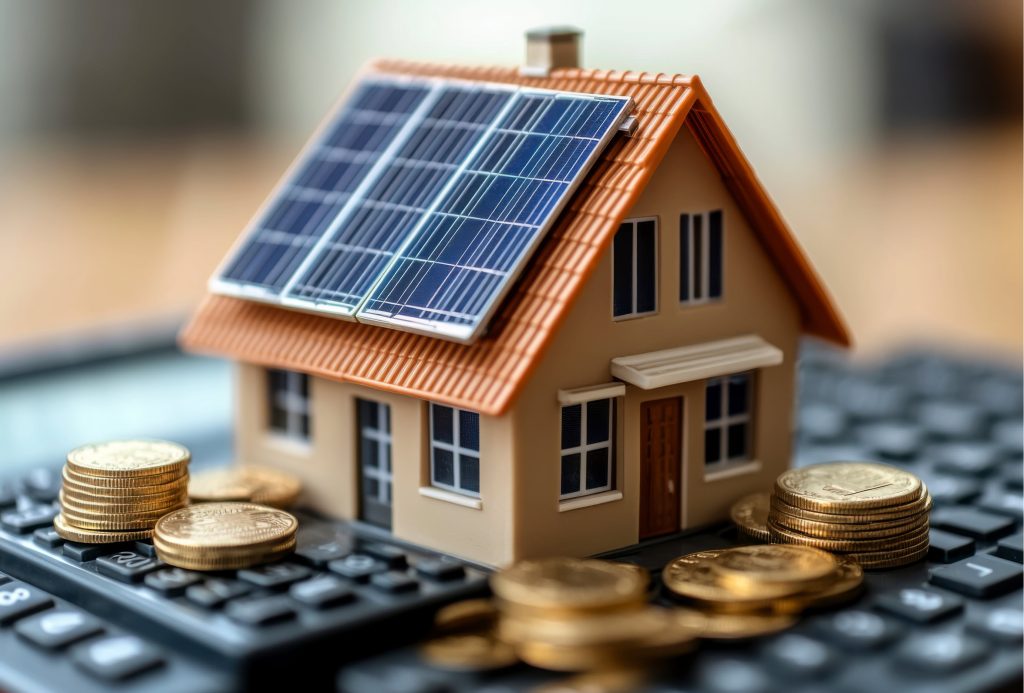 In today’s housing market, solar energy systems are more than just tools for lowering utility bills—they are also smart investments that increase property value. A complete system that combines solar panels, a hybrid inverter, and battery storage not only reduces costs but also improves resilience when the grid goes down. With demand for efficient, sustainable homes on the rise, solar energy systems offer one of the strongest returns on investment (ROI) available to homeowners.
In today’s housing market, solar energy systems are more than just tools for lowering utility bills—they are also smart investments that increase property value. A complete system that combines solar panels, a hybrid inverter, and battery storage not only reduces costs but also improves resilience when the grid goes down. With demand for efficient, sustainable homes on the rise, solar energy systems offer one of the strongest returns on investment (ROI) available to homeowners.
The Solar Value Premium: How Much More Can You Sell For?
Studies show that homes with solar panels often sell for more than comparable non-solar homes. A 2025 analysis by SolarReviews found that solar-equipped properties sold for an average of 6.9% more, adding roughly $25,000 to $29,000 in value depending on the market (SolarReviews, 2025).
Earlier research from EnergySage (2020) reported that homes with solar sold for 5% to 10% more, which translates to $15,000 to $40,000 depending on the property’s original price. These resale premiums highlight how buyers increasingly value long-term energy savings and sustainability. While most research focuses on the impact of panels alone, hybrid inverters and batteries enhance these benefits. Together, they allow homeowners not only to generate power but also to store and manage it more effectively—making homes even more appealing in today’s energy-conscious market.
Why Solar Energy Systems Increase Home Value
There are several reasons why complete solar energy systems command a premium in real estate markets:
- Energy savings appeal to buyers. According to the U.S. Department of Energy (2022), solar-equipped homes are attractive because they reduce operating costs over time. Adding batteries allows many homeowners to lower or even zero out their electricity bills by storing extra power for nighttime use.
- Resilience matters. With grid outages becoming more common, buyers are willing to pay more for homes that remain powered. Hybrid inverters and batteries provide backup energy when the grid goes down, offering security and peace of mind.
- Solar is a long-term asset. Unlike other upgrades that lose value quickly, solar systems continue to deliver financial and environmental benefits for 25 years or more, often with minimal maintenance.
- Home equity increases. As solar raises property value, homeowners gain additional equity, which can improve refinancing options or resale outcomes.
Factors That Affect How Much Value Solar Adds
The actual value a solar energy system adds to a home depends on several conditions. Location plays a major role: homes in sunny states or areas with high electricity costs typically see the greatest financial returns. System size and efficiency are also critical, as larger and more efficient installations that meet most or all of a household’s energy needs tend to increase property value more significantly. Ownership is another important factor. Homes with fully owned systems are far more attractive to buyers than those with leased systems, since ownership provides long-term control and full access to the financial benefits of solar.
Additional Financial Benefits Beyond Resale Value
Beyond increasing home value, solar energy systems provide several additional financial advantages. Homeowners benefit from tax incentives such as the federal Investment Tax Credit (ITC), which reduces installation costs by 30%. Many states also offer rebates that further lower the upfront cost of solar adoption (U.S. Department of Energy, 2022). In addition, many jurisdictions exempt the added value of solar from property taxes, allowing homeowners to enjoy higher resale value without the burden of increased tax obligations. Solar systems also reduce reliance on the grid, providing greater energy independence and protection from fluctuating energy prices. When combined with hybrid inverters and batteries, many households can lower or even eliminate their electricity bills entirely. Finally, solar energy systems deliver strong long-term returns, with typical ROI ranging from 20% to 30% over their lifespan, making them one of the most profitable and sustainable home improvements available today (SolarReviews, 2025).
How to Maximize the Value of Solar
To gain the most financial benefit from solar, homeowners should:
- Choose high-quality systems. Select panels, inverters, and batteries with strong warranties and proven performance.
- Work with certified installers. Professional installation ensures safety, efficiency, and long-term reliability.
- Pair panels with storage. Hybrid inverters and batteries give homeowners backup power during outages and the ability to maximize self-consumption—turning solar from a cost saver into a resilience tool.
Installing a solar energy system is both environmentally responsible and financially smart. While research confirms that solar panels increase home value, hybrid inverters and batteries enhance the benefits by cutting bills further, improving resilience, and making homes more attractive to energy-conscious buyers. As solar technology advances, the financial advantages will only grow—making solar one of the smartest, most future-proof investments for homeowners today.
References
EnergySage. (2020). Solar home value study: The impact of solar panels on property values. https://www.energysage.com
SolarReviews. (2025). Do solar panels increase home value? https://www.solarreviews.com
U.S. Department of Energy. (2022). How solar panels increase property value. https://www.energy.gov
